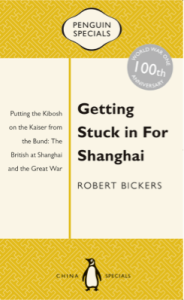Posted: May 22nd, 2014 | No Comments »
#9 – The Chinese delegation was the youngest in Paris in 1919….Betrayal in Paris now on Amazon UK and Amazon US….
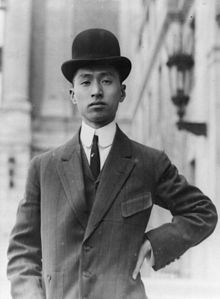
The Chinese were the youngest delegation in Paris. Wellington Koo (above) was just 32! Indeed very youthful compared to many others (none of the main members of the Chinese party was over fifty) and were seen as more fun, more entertaining than others; most were Western-educated and at ease in Parisian and high diplomatic society.
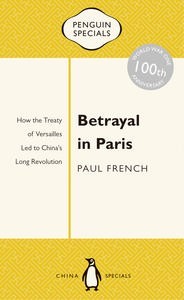
Posted: May 21st, 2014 | No Comments »
#8 – Wellington Koo was a champion university debater while his adversary, Baron Makino was a master Go player….Betrayal in Paris now on Amazon UK and Amazon US….
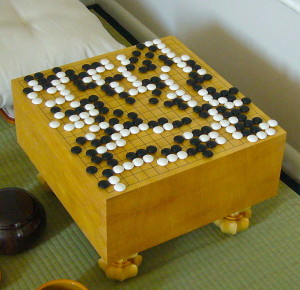
Japan’s lead negotiator in Paris was Baron Makino, reputedly a master of go, an ancient Chinese game of strategy. Koo, China’s lead negotiator, had studied abroad, at Columbia in New York, where he had been an outstanding student and a key member of the university debating team.

Posted: May 20th, 2014 | No Comments »
#7 – The Chinese delegation’s major negotiator Wellington Koo found time to fall in love….Betrayal in Paris available on Amazon UK here and Amazon US here…
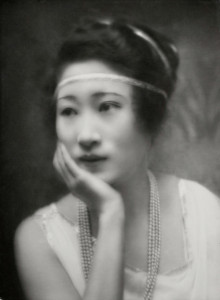
While in Paris Wellington Koo swiftly pursued and courted a Peranakan sugar-cane heiress, the Chinese-Indonesian Oei Hui-lan (Huang Huilan), a noted beauty and style-setter. She had sent him a picture of herself to attract his attention; in return Koo flooded her with chocolates and orchids.

Posted: May 19th, 2014 | No Comments »
#6 – George Morrison (“Morrison of Peking”) was officially part of the Chinese delegation in Paris….

The well known Australian journalist George Morrison (‘Morrison of Peking’), the former Times correspondent in China was an official “foreign adviser” to the Chinese in Paris. But he went down with bad kidneys, subsisted on a diet of boiled fish and rarely surfaced, leaving for England and dying soon afterwards. He spent the entire conference stashed away in the MacMahon Palais Hotel.

Posted: May 18th, 2014 | No Comments »
#5 – Several later-to-be-famous Chinese artists were studying in Paris at the time and demonstrated against Japan’s occupation of Shantung….
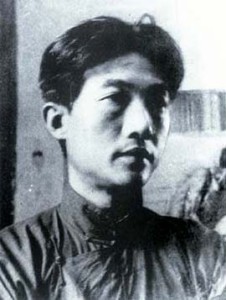
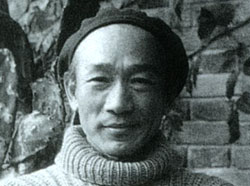
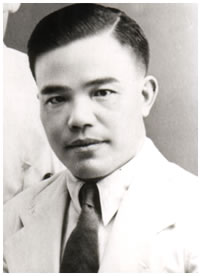
Chinese art students in Paris in 1919 were an especially radicalised group and included several artists who went on to become well known in China. Xu Beihong (top) had arrived in Paris in 1919 to study oil painting and drawing at the École nationale supérieure des Beaux-Arts and was to become one of the most prominent artists in China. Lin Fengmian (middle), arriving shortly after Xu, became a pioneer of modern Chinese painting for his blending of Chinese and Western styles. The Fujian-born artist Ong Schan Tschow (Weng Zhanqiu) (bottom) arrived in Paris in 1919 after winning a Chinese government scholarship to the École nationale supérieure des Beaux-Arts.

Posted: May 15th, 2014 | No Comments »
#4 – The Chinese negotiators at Versailles drank tea and ate the finest home made macarons….
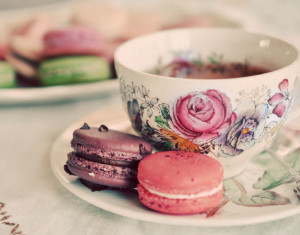
During the long negotiating sessions the Chinese drank endless cups of tea provided at all the conference’s sessions, and ate superbly dainty macarons supplied by the Quai d’Orsay’s excellent kitchens.

Posted: May 14th, 2014 | No Comments »
RAS LECTURE
THURSDAY 15th MAY 2014
7pm for 7.15pm
Â
Li Ballroom at the Radisson Xingguo
ROBERT BICKERS
Getting Stuck in For Shanghai: Putting the Kibosh on the Kaiser from the Bund
Historian and author of Empire Made Me (“dedicated and original scholarship†– Sunday Times) returns to Shanghai, one of the most colourful outposts of the British Empire. In this First World War Special, Robert Bickers tells the stories of the largest contingent of Shanghai Britons to fight the Kaiser’s forces in Europe, exploring their contradictions, patriotic fervour and battlefield experiences.
After 1914, between tiffin and a day at the racetrack, the British in Shanghai enjoyed a life far removed from the horrors of the Great War. Shanghai’s status as a treaty port – with its foreign concessions home to expatriates from every corner of the globe – made it the most cosmopolitan city in Asia. The city’s inhabitants on either side of the conflict continued to mix socially after the outbreak of war, the bond amongst foreign nationals being almost as strong as that between countrymen. But as news of the slaughter spread to the Far East, and in particular the sinking of the Lusitania, their ambivalence turned to antipathy.
Robert Bickers is a writer and historian, author of ‘Empire Made Me: An Englishman Adrift in Shanghai’ and ‘The Scramble for China: Foreign Devils in the Qing Empire, 1832-1914’. He has written extensively on Chinese history and is currently Professor of History at the University of Bristol.
The First World War altered the course of the twentieth century, heralding the decline of the great European empires and ending a golden era of optimism. While for many, the Great War was a European war, the war was actually much more wide reaching. Its battles were fought as far away as the Shantung Peninsula in northeastern China, and its legacy continues to reverberate in the modern geopolitical relationships that the world’s biggest rising power has with its neighbour. To mark the centenary of the First World War, Penguin China has assembled a series of Specials by the world’s top China hands that bring a fresh and fascinating perspective to the conflict.
ENTRANCE: Â Members 70 RMB – Non Members 100 RMB
Includes a glass of wine or soft drink
Priority for RAS members. Those unable to make the donation but wishing to attend may contact us for exemption.
MEMBERSHIP applications and membership renewals will be available at this event.
RAS MONOGRAPHS – Series 1 & 2 will be available for sale at this event. 100 rmb each (cash sale only)
WEBSITE: Â www.royalasiaticsociety.org.cn
Posted: May 14th, 2014 | No Comments »
#3 – The Chinese Delegation kept the hotel bar open late every night singing….

So many of the Chinese delegation to Versailles were graduates of American universities that at night the Hotel Lutetia’s bar swelled with informal alumni meetings and rousing renditionsof Columbia University songs among old boys of both Chinese and American descent.









